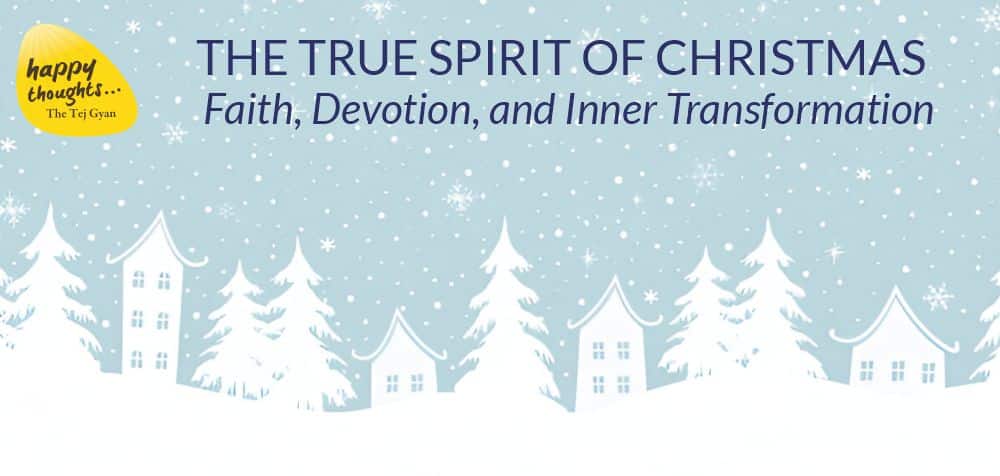
The True Spirit of Christmas: Faith, Devotion, and Inner Transformation
Christmas is a time of celebration, a season filled with cherished traditions. Yet amidst the familiar traditions, the true significance can sometimes be overshadowed by the festivities. It is a time to reflect on the core message of Christmas beyond just the festivities. What wisdom can we draw from Jesus’s teachings? What messages and teachings should we incorporate in our lives? How can we experience the true spirit of Christmas with deeper understanding?
Jesus was born in Bethlehem to the holy Virgin Mary, a symbol of devotion to God. A deep connection to the divine marked Jesus’ early life. The Jerusalem Temple played a significant role in his formative years. Jesus would often spend hours in the temple. These frequent visits served as a constant reminder to Mother Mary that Jesus’s true home was his Father’s (God) home, which was the temple. This spiritual immersion and the transformative journey paved the way for Jesus’s evolution from wisdom to spiritual enlightenment.
Reflecting on these ancient stories offers invaluable wisdom. The story of Mother Mary provides a profound example of faith and surrender. Her unwavering belief in God’s will, “Thy will be done,” was so powerful that her entire focus was only on selfless service to God and deep gratitude for being part of the divine plan. Her unwavering faith and commitment were instrumental in Jesus’ holy birth. This is an opportunity to contemplate: if we could embody such devotion, what extraordinary acts of service might we be capable of? By cultivating such devotion, we might open ourselves to a life of purpose and meaning, discovering the unique contributions we are meant to make to the world.
When Jesus learned that John the Baptist was on his journey to the south of Israel, baptizing people, Jesus approached him to be baptized. John was initially reluctant to baptize Jesus as he wanted to be baptized by Jesus because he could recognize Jesus’ divine plan. Yet, Jesus chose to be baptized by John. This act marked a significant transition in Jesus’ life, followed by forty days of solitude—a time of deep reflection and spiritual awakening. That was his Eureka moment, and upon his return, Jesus started delivering sermons, offering guidance and wisdom Those who listened and understood him took the most advantage of his presence.
Jesus often used parables and examples in his teachings, designed to convey profound spiritual truths. However, many of these were misinterpreted. Only people who listened with open hearts and a genuine desire to learn understood him well and looked for deeper meaning beyond literal words. His teachings about prayer and faith in God were included in some anthologies. For instance, the parable of the persistent widow pleading her case before a judge or the analogy of a child trusting his loving father for a gift highlights the importance of unwavering faith in God. Just as the judge eventually listens and accepts her plea or the father gifts the child, we too must have trust and faith in our divine father, God, who will always answer our prayers. These examples emphasize that prayers with faith and devotion will be answered and that patience is key to spiritual growth.
Jesus emphasized the commandment that the kingdom of God can be found within each of us rather than traditionally seeking him outside. Festivals like Christmas are reminders for us to seek God within ourselves. It is a festival to shed the burdens of ego, negative tendencies, and lack of faith. It is a time to embrace faith and nurture the seeds of trust and the pursuit of truth. The festival teaches us to trust the power of prayer and have faith in God.
Therefore, while we celebrate and participate in family traditions during Christmas, it is essential to remember the profound message hidden behind celebrations. Let us not forget that the path to a fulfilling and meaningful life lies in cultivating a connection with God through prayer and devotion. This is the true source of bliss, the key to experiencing lasting fulfillment.

















Add comment